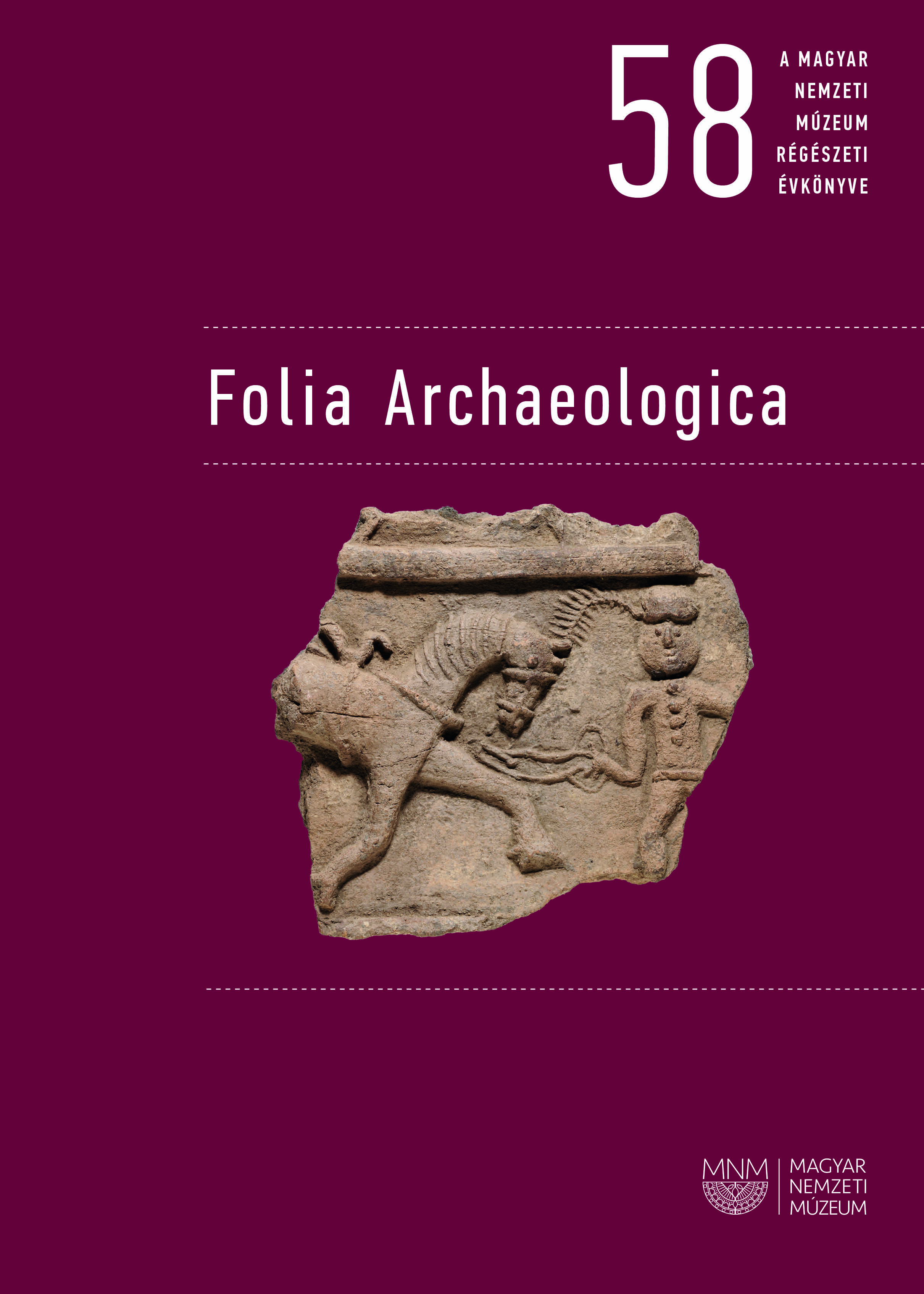Roman Iron Folding Chairs in the Archaeological Collection of the Hungarian National Museum on Which Nothing has Been Published
New Data on the Interpretation of Iron Chairs Recovered from the Burial Sites of the Provincial Elites in the Roman Period
DOI:
https://doi.org/10.62259/QRKV8127Keywords:
Pannonia, local elites of the Roman Period, acculturation, Eravisci, Azali,, iron folding chair, chair with backrest, armchai, carriage grave, daily hygienic routine, Roman bathing equipment, instrumenta balnei, oil vessel, strigilis, perfume casket, Seuso Treasure, Esquiline Treasure, Rülzheim TreasureAbstract
The study discusses the Roman-Period graves of the native elite in NE Pannonia containing iron folding chairs. In his 2013 study the author rejected the interpretation that the chairs indicated the status or office of the deceased, suggesting instead that these chairs had been part of instrumenta balnei and/or toiletry sets. His arguments were based on the analysis of the currently known elite burial sites with iron chairs from the European provinces of the Roman Empire, the position of the chairs in the grave and their occurrence together with bathing paraphernalia, as well as on various depictions. After ten years, the author aims to provide an update on the present state of research and address new issues concerning iron chairs recovered from the burial sites of local elites in the Roman Period. He provides information concerning three previously unknown iron folding chairs from the collection of the Hungarian National Museum. He offers a brief overview of the different types of chairs used by women for washing or grooming, known from illustrations, recovered as grave goods or discovered in hoards.


